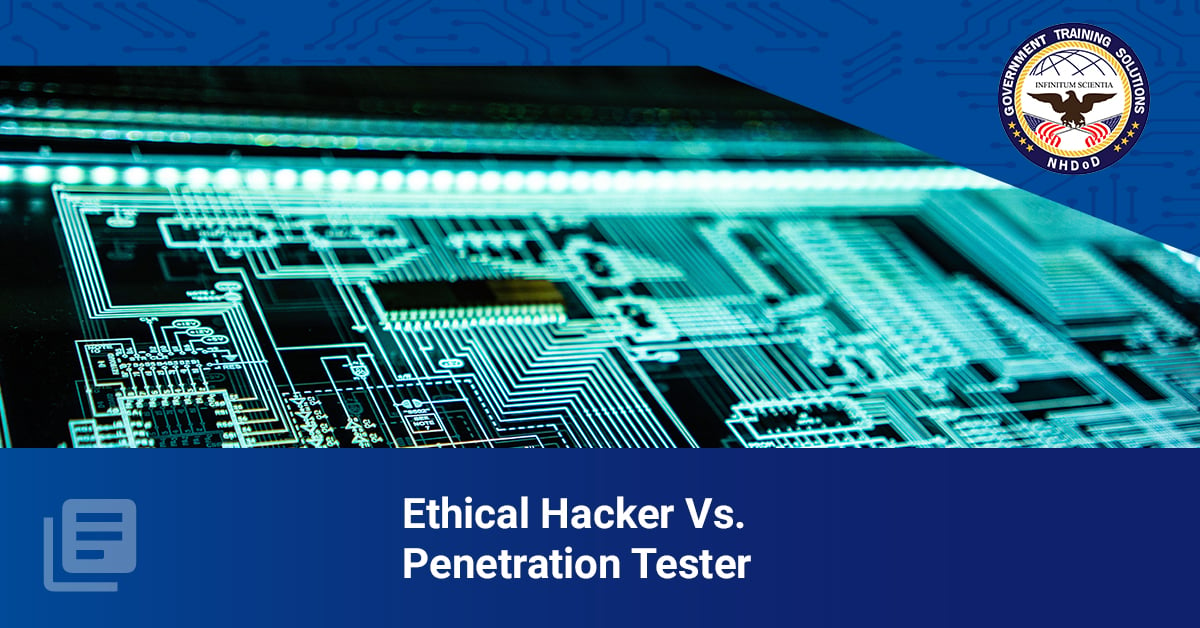
Comparing Ethical Hackers to Penetration Testers
Ethical hackers and penetration testers both work in corporate settings, where they apply their knowledge of computing networks and systems security to prevent security breaches. Penetration testers may work as part of an IT team as they oversee all sides of network security. Ethical hackers use their hacking smarts to prevent the not-so-ethical hackers from attacking the system. Other similarities and differences are discussed below.
Responsibilities of Ethical Hackers vs. Penetration Testers
Ethical hackers and penetration testers have similar daily responsibilities in that they work to expose vulnerable areas in the network of a company in order to prevent hacks, viruses, and other forms of security attacks. Ethical hackers use their expertise to test attacks on a network the way a malicious hacker would, exposing security flaws and fixing these areas of concern. Penetration testers' roles are a little broader, overseeing security in everything from mobile applications to source code. They may also work more directly with employees on the safety of their daily work and routine computing practices.
Ethical Hacker
Ethical hackers use their hacking expertise to inform companies of vulnerable areas in their networks. Read how to become an ethical hacker here>> This is done through tests using their hacking know-how, as well as personally created worms, viruses, and other malware. A deep knowledge of hacking, computer programming, and IT is vital, as is the ability to clearly explain these intricate issues to the companies they work with. Prior experience is required, and certifications, such as the Certified Ethical Hacker certification issued by the International Council of Electronic Commerce Consultants, could be preferred.
Job responsibilities of an ethical hacker include:
-
-
-
- Stay informed on the latest trends in hacking and IT
- Develop solutions for problem areas in a network
- Fine-tune a network's detection mechanisms
- Prepare reports outlining vulnerabilities and potential breach points
-
-
Penetration Tester
Penetration testers are cybersecurity professionals who work to prevent security breaches for companies and other organizations. They test networks using a variety of tools to pinpoint which areas are most vulnerable, such as threat modeling, attack & penetration testing, and code review. Communication with employees is important, as these testers must convey the best safety practices during daily computer use. Penetration testers may work as part of a larger department, such as IT or cybersecurity, or as independent contractors. A bachelor's degree in information technology or a related field is useful, but applicable experience may be just as important.
Job responsibilities of a penetration tester include:
-
-
-
- Develop methods for detecting attacks
- Create programs to test network security
- Determine the needs and concerns of company management
- Explain basic security practices to clients
-
-
Required Experience
In some cases, employers may consider several years of experience in lieu of a degree. Depending on the systems used by employers, applicants may need to be experienced with Microsoft and Linux operating systems so pursuing opportunities to learn about and work with a wide range of operating systems, programming languages, and security software is recommended.
Required Certification
Ethical hacker programs last five days and include intense hands-on experience using the latest hacking tools and techniques. These programs prepare individuals to take the certification exam to earn their ethical hacker certification. Certified Information Systems Security Professional (CISSP) certification covers training in a number of topics, including security policies, cryptography, and ethics. These are two of the certifications that are required or preferred by employers. Other security certifications or IT certifications, such as Certified Information System Auditor (CISA), may be an asset to those pursuing a career as a penetration tester.
Required Skills
Penetration testers need to have excellent computer skills and familiarity with computer hardware and computer network equipment, as well as computer programming skills. Since they must produce written reports based on their tests and results they need to have strong written communication skills. They need to have the ability to pay careful attention to details and have problem-solving skills to accurately assess the effectiveness of security systems. These skills are also needed to help them effectively identify vulnerabilities and determine how to correct security issues. In order to perform those tasks they also need excellent analytical skills so that they can effectively review relevant data.
Career Definition of a Penetration Tester
Penetration testers may also be known as ethical hackers or as information security analysts. They are responsible for ensuring that computer information systems are protected from hackers. In their role they are responsible for running tests on the networks, applications and software. They attempt to hack in so that they can access data that should not be accessible without proper authorization. They do this in order to help identify potential weaknesses in the existing systems. When they identify potential weaknesses they collaborate with other professionals in order to determine the best way to resolve them. This can involve rewriting program code or adding additional security measures.
Penetration testers also review any incidents that occur with the security of the system. When they conduct tests or assessments they compile their results and write reports concerning their findings.
Career Outlook and Salary
Penetration testers are encompassed within the U.S. Bureau of Labor Statistics (BLS) listing for information security analysts. From 2019 to 2029, the BLS forecasts a job growth rate of 31% for these professionals. This is considerably higher than the average job growth rate for all occupations during this time period, which means that those interested in becoming penetration testers should find many openings in their field to pursue. According to several different sources, penetration testers earned a median annual income of $85,478 as of 2021.
|
Median Salary (2021) |
$85,478 |
|
Job Outlook (2019-2029)** |
31% |
**U.S. Bureau of Labor Statistics


